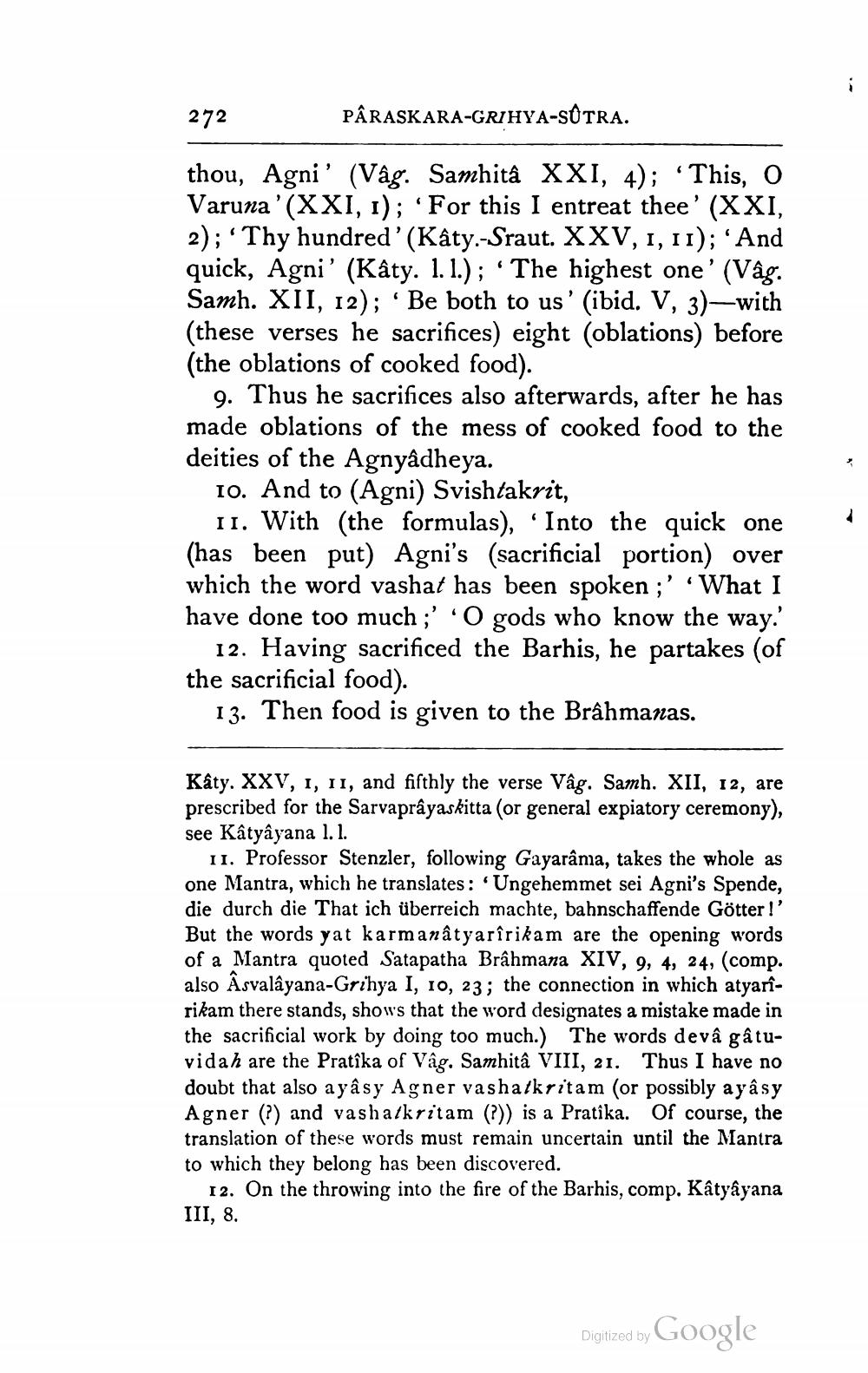________________
272
PÂRASKARA-GRIHYA-SOTRA.
thou, Agni' (Vâg. Samhitâ XXI, 4); “This, O Varuna'(XXI, 1); 'For this I entreat thee' (XXI, 2); 'Thy hundred'(Kâty.-Sraut. XXV, 1, 11); 'And quick, Agni' (Kâty. 1. 1.); •The highest one' (Vâg. Samh. XII, 12); 'Be both to us' (ibid. V, 3)—with (these verses he sacrifices) eight (oblations) before (the oblations of cooked food).
9. Thus he sacrifices also afterwards, after he has made oblations of the mess of cooked food to the deities of the Agnyâdheya.
10. And to (Agni) Svishtakrit,
11. With the formulas), Into the quick one (has been put) Agni's (sacrificial portion) over which the word vashat has been spoken ;' •What I have done too much ;' 'O gods who know the way.'
12. Having sacrificed the Barhis, he partakes (of the sacrificial food).
13. Then food is given to the Brâhmanas.
Kâty. XXV, 1, 11, and fifthly the verse Vâg. Samh. XII, 12, are prescribed for the Sarvaprayaskitta (or general expiatory ceremony), see Kâtyâyana l. 1.
11. Professor Stenzler, following Gayarânia, takes the whole as one Mantra, which he translates: Ungehemmet sei Agni's Spende, die durch die That ich überreich machte, bahnschaffende Götter!' But the words yat karmanâtyarîrikam are the opening words of a Mantra quoted Satapatha Brâhmana XIV, 9, 4, 24, (comp. also Âsvalâyana-Grihya I, 10, 23; the connection in which atyarîrikam there stands, shows that the word designates a mistake made in the sacrificial work by doing too much.) The words devâ gâtuvidah are the Pratîka of Vâg. Samhita VIII, 21. Thus I have no doubt that also a yâsy Agner vashatkritam (or possibly a yâsy Agner (?) and vashatkritam (?)) is a Pratika. Of course, the translation of these words must remain uncertain until the Mantra to which they belong has been discovered.
12. On the throwing into the fire of the Barhis, comp. Katyayana III, 8.
Digitized by Google




